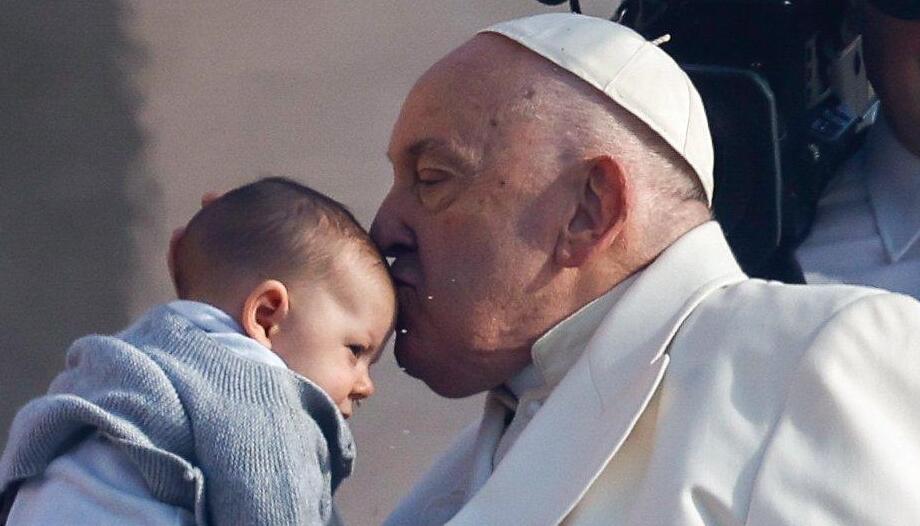The Gospel of St. John (15:9-17), in which Jesus preaches the commandment to love one another, "as I have loved you", was the motif of Pope Francis' reflection on the Regina coeli of this VI Sunday of Easter.
"Greater love has no man than this, that a man lay down his life for his friends. You are my friends, if you do what I command you. I no longer call you servants [...], I call you friends, for all that I have heard from my Father I have made known to you". This is what can be read in a fragment of this Gospel, and the Pope referred to it.
"Today the Gospel tells us that Jesus said to the Apostles: 'I no longer call you servants, but friends,'" the Pope began. "What does this mean? In the Bible, God's 'servants' are special people, to whom God entrusts important missions, such as Moses, King David, the Prophet Elijah, even the Virgin Mary (cf. Lk 1:38). They are people into whose hands God places his treasures".
Our friends, friendship
"But all this is not enough, according to Jesus, to say who we are for Him: something more is needed, something greater, that goes beyond goods and plans themselves: friendship is needed," he continued. "Let us think for a moment about our friendsAnd let us give thanks to the Lord! Friendship is not the fruit of calculation, nor of constriction: it is born spontaneously when we recognize something of ourselves in the other person. And, if it is true, it is so strong that it does not falter even in the face of betrayal".
"A friend loves on every occasion," says the Book of Proverbs, "as Jesus shows us when to Judas, who betrays him with a kiss, he says: 'Friend, that's what you are here for!' "A true friend does not abandon you, even when you make a mistake: he corrects you, he may reprimand you, but he forgives you and does not abandon you."
"We are friends of Jesus."
"And today Jesus, in the Gospel, tells us that for him we are precisely that, friends: people dear to him beyond all merit and expectation, to whom he reaches out his hand and offers his love, his grace, his Word; with whom he shares what is dearest to him, all that he has heard from the Father (cf. Jn 15:15). To the point of becoming fragile for us, to the point of placing himself in our hands without defense or pretense, because he loves us, wants our good and wants us to share in his.
"For him we are his friends, and he loves us as friends. May Mary help us to grow in friendship with her Son, and to spread it around us," the Pontiff concluded.
Orthodox Easter and dialogue for peace
After praying the Regina Coeli from the window of the Apostolic Palace, and before thousands of Romans and pilgrims gathered in Peter's Square, the Pope joined in the joy of the Easter celebration of our Orthodox brothers and sisters and of the Eastern Catholic Churches.
He also prayed for those who died in the floods in Rio Grande do Sul (Brazil), and for their families, in union with the whole Church in Brazil. And he prayed "for peace" in the wars in "the martyred Ukraine" and in the Holy Land, Israel and Palestine. "No to war, yes to dialogue", he repeated at least twice.
Frascisco also greeted Italian parishes where young people receive the sacrament of Confirmation, and also mentioned a greeting to Human Life International, and to the Meter Association, committed to the fight against any form of abuse against minors.









